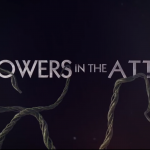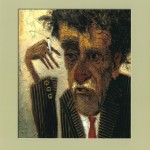What would happen if you took a copy of Les Miserables and highlighted the bits about Jean Valjean, that illustration of grace and mercy, and Javert, relentless man of the law, and left out all that other stuff about student revolutions and orphaned waifs and the never-ending Battle of Waterloo? Okay, yeah, you would get The Fugitive. But add in trains, carnivals, cowboys, and the dying dream of the Old West, and you’ve got Leif Enger’s So Brave, Young, and Handsome, a distinctly American tale of redemption.
So what if the tale’s been told before? As Enger himself writes in his bestselling 2001 novel, Peace Like a River, repetition of a story doesn’t make it any less true or beautiful (I’m paraphrasing here).
So Brave, Young, and Handsome is set in 1915 and begins in Minnesota, but travels south and west from there. In this novel, the role of Valjean is played by Glendon Hale, a small, white-haired former outlaw, now a boat-builder with the chief ambition of finding the wife of his youth and apologizing for having abandoned her. Javert is a Pinkerton Detective named Charles Siringo, a ruthless tracker who relishes the book of Ecclesiastes but doesn’t have much use for Proverbs. Our narrator is Monte Becket, middle-aged writer who published a popular Western adventure novel five years before. He fears that he may be a one-hit-wonder, though, as none of his subsequent drafts have captured the spark of his first achievement. He longs to prove himself to his patient wife. Of course, by the end of Enger’s novel, he does. Enger is not a writer out to disappoint or shock the reader; you know where the story’s going, and you can relax in the author’s hands, enjoying the path to a satisfying destination.
You can tell a lot about Enger’s own reading taste from conversations he records in his books. For example, in So Brave, Young, and Handsome, police detective Royal Davies tells Becket, “You’re doing these youngsters no service . . . You authors, I mean—this world ain’t romance, in case you didn’t notice.”
“So I am discovering,” Becket replies in that scene, but as retrospective narrator, he continues to reflect, “It was, I suppose, the expected wry answer, and it made my host chuckle, but now I am taking it back. I take issue with Royal, much as I came to like him; violent and doomed as this world might be, a romance it certainly is.”
Becket clearly means romance here in the sense of adventure and derring-do, not just lovey-dovey stuff (though that’s often part of the adventures as well). Pardon the English teacher in me, but I also have to mention the literary genre of romance here, because I think it’s a genre in which Enger comfortably operates. As Becket’s and Enger’s 19th-century predecessor Nathaniel Hawthorne wrote, “When a writer calls his work a romance, he wishes to claim a certain latitude, both as to its fashion and material, which he would not have felt himself entitled to assume had he professed to be writing a novel.” It’s not strict realism—and the supernatural is often involved—but Becket is claiming here that, in a way, romance is truer to life than stark realism (or the even starker naturalism that would have been popular in Becket’s youth). A romance will not necessarily have a happy ending, as anyone who’s read Hawthorne’s The Scarlet Letter could tell you. But the ending will not be meaningless.
There’s a hilariously familiar scene in So Brave, Young, and Handsome, in which Becket continues to debate literary value with Royal Davies’s wife. Mrs. Davies asks Becket what he thinks of writer Boyd Singleton Ample, a famous contemporary who seems to operate in the realist (if not the naturalist) vein. Feeling like he ought to like Ample because he is a “very important writer,” Becket trots out phrases like “his insights on human miseries are salient” and “a broader understanding of human darkness.”
Again stepping into narrative retrospection, Becket explains that his attempted insight about Ample “didn’t seem like a weak limb to climb out on—it was a common opinion among people who were serious about Literature and the phase it was in, whether of ascent or decline, and What It All Meant for Society. In his [Ample’s] most recent novel he had sallied out with a number of momentous ideas, namely that war is difficult, and that poverty is difficult too; in fact, that much of human experience is marked by difficulty. I don’t remember who is at fault.”
To all of which Mrs. Davies responds: “Horse puckey.” (And this is about as coarse as the language in the novel gets, in case you’re curious.)
This isn’t to say that Enger ‘s writing doesn’t display a broad “understanding of human darkness” itself, but his novels go beyond Ample’s fatuous insights that life is hard. Life is hard, but there is blessing in it. As Becket says of outlaw Glendon Hale, “I could feel the draw of his silence, the draw of his naïve and weak-eyed quest for atonement; no doubt even his shifty past was a draw, for his life seemed a curving line, capricious, moment by moment inviting grace.”
For those who lament the absence of Christian literary fiction in the early 21st century, Leif Enger may provide what’s missing. He may not be literary enough for many litterateurs, and he may not be Christian enough for many Christians, but, in my opinion, that proves that he’s writing just as he should.











